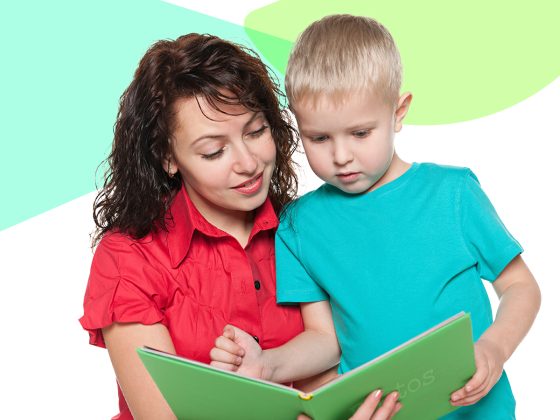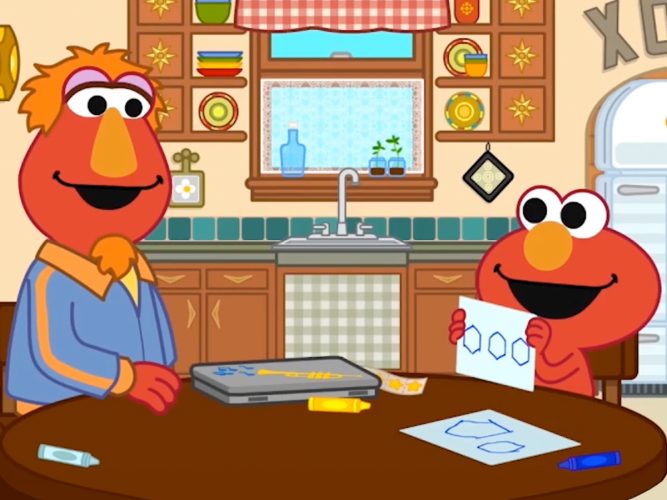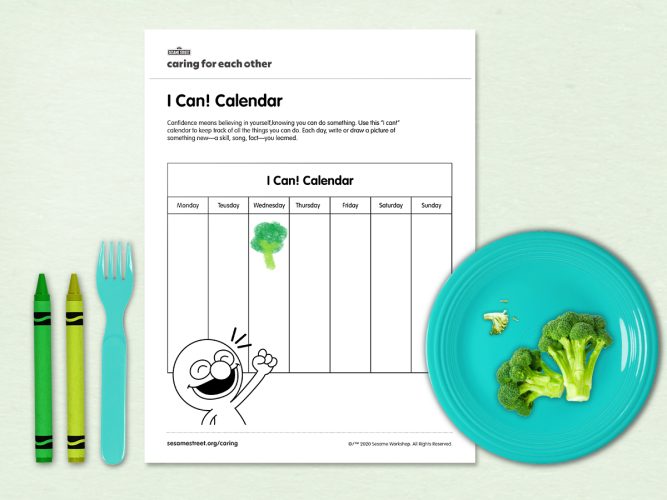
Building Self-Confidence
Self-confidence is the steppingstone to mastering new things; by believing in themselves, children will find it easier to believe in their ability to succeed.
You Can Do It!
Every day kids are faced with new things to learn. But mastering new skills takes time and persistence, which can sometimes be a challenge. You can help nurture the self-confidence they need to believe in themselves and their ability to prevail.
These resources will . . .
- Remind you to recognize and celebrate your child’s recent achievements;
- give your child the tools essential to a feeling of confidence in the ability to overcome frustration and stay focused for however long it takes; and
- suggest easy activity ideas to encourage him or her to persist in trying, until…success!
We Are Confident
To a child, the world is a huge place. Every day there are new things to learn and new skills to conquer. Sometimes it may seem overwhelming. Feeling self-confident is an important building block for success. Still, success rarely happens instantly. Self-confidence also allows your child to be an explorer, to risk failing on the first–or second, or tenth– attempt, but to try again and again to reach the goal.
Look back on successes
Sometimes we’re so focused on what still needs to be learned–on what lies ahead–that we forget about all the things that have already been mastered. Remind your child that she absolutely can do it. She’s done so much already!
- Look through old photo albums together. Talk about the things he learned when he was younger and relive all his achievements so far. Offer positive reinforcement: “You’re great at learning new things!”
- Ask: What do you think are your best qualities? What are you most proud of learning to do? You might be surprised by your child’s answers. While you’re talking, you might also want to ask what frustrates your child–it can help to know.
We’re all in this together
It’s important to remind your child that learning happens all through life. Emphasize that even grown-ups are always learning, and it isn’t always easy for them either. Share some of your own recent difficulties and successes.
- Challenge the whole family to learn something new together: perhaps a new dance step, or hula hooping, for instance. Let your child see you working hard at it. After all, you are the best model for all the strategies you’re trying to foster in your child.
- It’s a confidence boost to have your efforts recognized by others! From time to time, honor a specific member of the family. You can go around the dinner table, with each person adding one special thing about the honoree: “He stuck with it and learned to skip.” “She gave me a hug and cheered me up, the way she always cheers people up.” And so on. You can even make a special crown or decorate a special plate for the honoree to use.
Step by step
Learning new things usually takes time. Emphasize to your child that maybe she can’t do it yet, but she’s on her way.
- Break down the skill being learned into smaller steps. Make sure to notice and celebrate the mastery of each step along the way.
- Pick a fun cooking project to do together, to illustrate that a cupcake, for example, doesn’t just spring up all at once. You have to gather the ingredients, measure and mix, chop and pour, and finally, bake. One step at a time!
- Talk about using positive “self-talk” when things seem difficult. You may even want to write some phrases on slips of paper and hang them up for your child to look at if frustration sets in. I can do it! Maybe not yet, but soon I bet! Keep at it! I’ll get there! I believe in myself!
- Remind your child to take a few deep breaths if she’s frustrated, or to walk away if he needs a minute to regroup. Sometimes it’s important to press the reset button!
- Be ready to listen to your child if things get tough. Validate his frustration: “I can see you’re having a hard time. Let’s strategize about what to try next.” Emphasize that you’re always there if extra help or encouragement is needed.
Celebrate!
- With each new achievement, celebrate! Not with a vague “good job,” but with something specific: “Wow, you really kept trying until you could read that whole book by yourself.” Or try putting a note of congratulations in your child’s lunch box, or under the pillow at night.
- Make sure your child knows how proud you are–not just of finally succeeding, but also of all the effort and perseverance along the way, of sticking with it. (Hugs are always a good strategy.) Yay!

Building Confidence with Elmo and Louie
Self-confidence is the steppingstone to mastering new things; by believing in themselves, children will find it easier to believe in their ability to succeed.

I Can Calendar
Self-confidence is the steppingstone to mastering new things; by believing in themselves, children will find it easier to believe in their ability to succeed.
